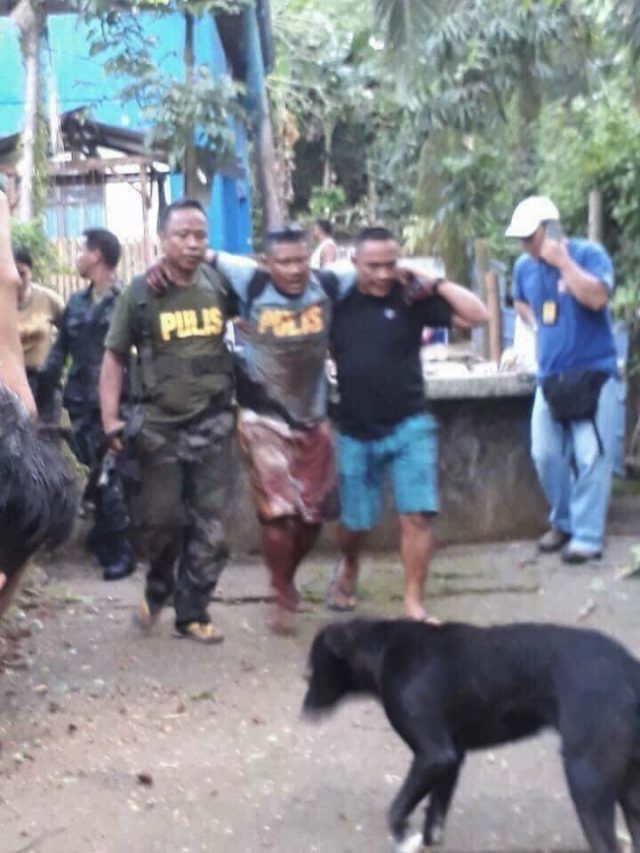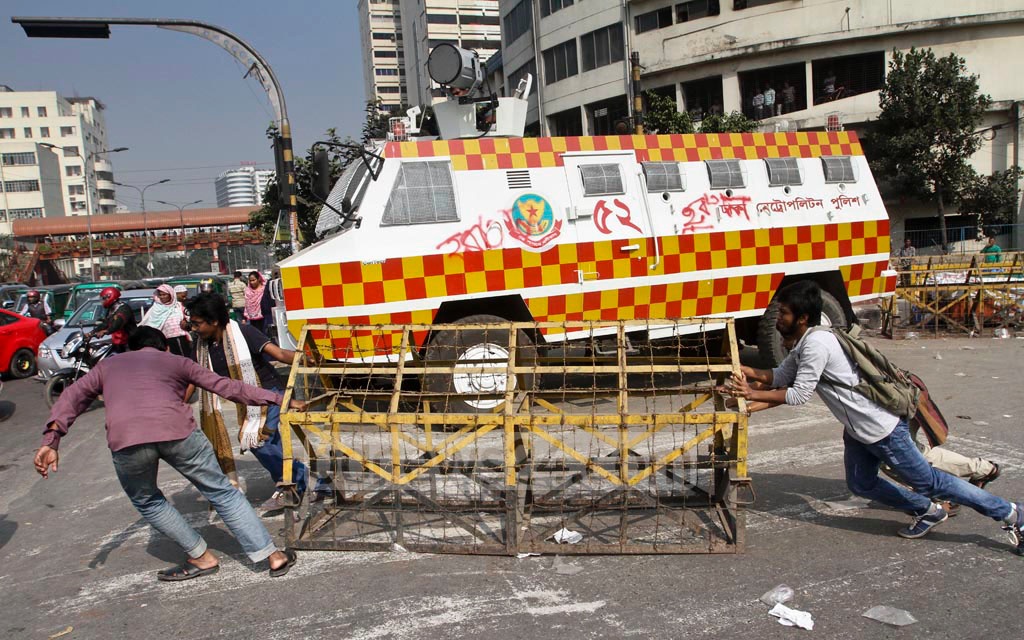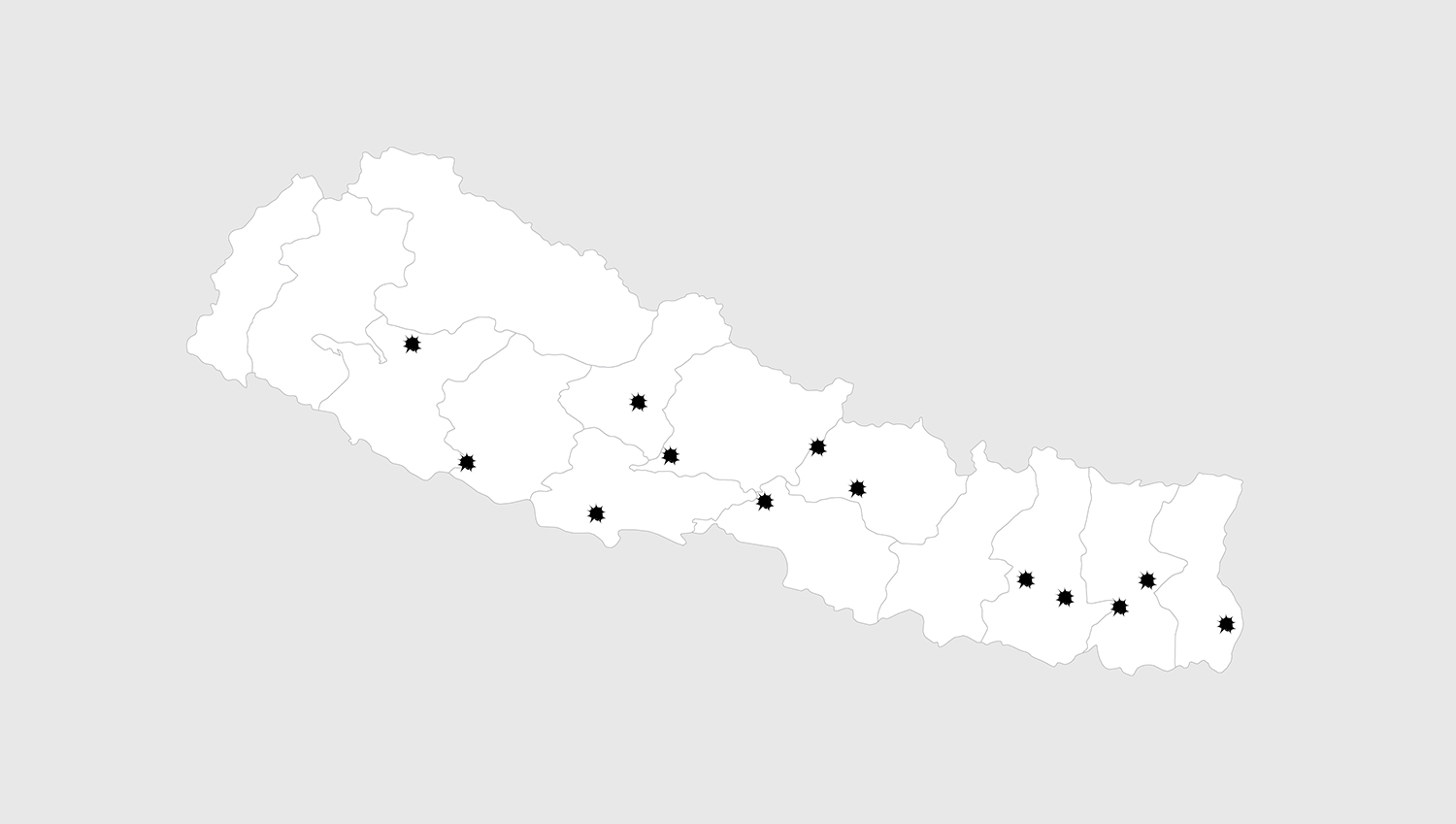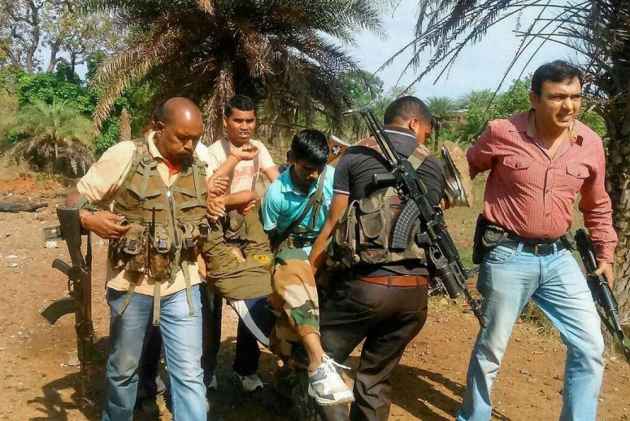Asien
Asien
- Details
- Category: Asien
Yesterday, Philippine Congress with a huge majority accepted president Duertes proposal to yet again prolong the Martial Law in Mindanao that is been in place since May this year. Contradicting the previous claims that this law would serve the “War against ISIS”, he now clearly stated his intention of enacting this law in order to combat the NPA, which has significant influence on the Island.
- Details
- Category: Asien
On December 10th, the British Columbia Federation of Labour expressed their support of Comrade G.N. Saibaba who is being murdered by the indian state, writing:
"Dr. Saibaba is an indigenous rights activist who is currently imprisoned for being a leading voice defending the rights of adivasis (tribals), dalits (formerly called untouchables), and religious minorities in India. He is a person living with a physical disability and his living conditions in prison are of international concern."
In India, Comrade Kobad Ghandy has been released from prison on bail at the 12th of December. 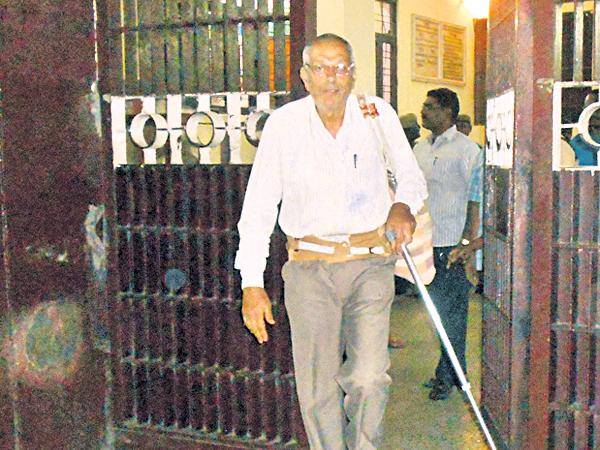
- Details
- Category: Asien
Following the announcement of the Bangladesh Energy Regulatory Commission on the 23th of November to raise the costs of electricity by 5.3% starting December, a wide range of organisations called for protest on the 30th of November. Some thousand people participated in strike activities and blockades on this day.
- Details
- Category: Asien
The big demonetisation campaign in India, with one of the official main goals being to give a blow to the Communist Party of India (maoist) by making the big banknotes worthless proved to not affect the comrades.
As the bourgeois indian media reports, the police confirmed that they found at least 20 pages of handwritten accounts, spanning several years, were recovered after the encounter in the jungles of Abujhmaad in Narayanpur District in Chhattisgarh on the 7th of November. These documents show, that this Janatana Sarkar (translates to “local government”) of Nelnar exchanged money worth 200.000 INR (Indian Rupees) in 500INR and 1000INR bills (which were demonetised), for example in one case it states: “Note bandi ke dauran 2 lakh jama kiya manta (Deposited 200.000 during note ban).”
A special agent for the war against the people (or how the bourgeois Indian media calls them: Anti-Naxal Operations) admits, that “they would have exchanged some notes, and have an ecosystem that supports them in the region”, but claims the stated above is not true, because he does “feel that demonetisation affected their operations”.
A local police officer states though: “Maoist organisation, from the special zonal committee to the Janatana Sarkar, has separate accounts and would have exchanged their notes. We cannot even begin to quantify the amount”. Narayanpur District in Chhattisgarh has as many as 91 operational Janatana Sarkars, according to Police records.
- Details
- Category: Asien
2017 is the first year since 1999 in Nepal for elections for the bourgeois parliament to take place. After years of People’s War and the blatant treason against the Nepalese people by Prachanda, the bourgeois media of Nepal tries to talk them into believing the story of a calm, peaceful election. For their campaigns the reaction also used mules and drones to carry their propaganda into remote areas to reach each and every one of the 28 million living in Nepal. The first phase of this election was at the 26th of November, the second will be at the 7th of December.
The Nepalese people prove them wrong though. The armed forces of Nepal try to underact it, but still have to admit, that “several maoist groups” execute attacks against the electoral farce. They report at least 30 IED (improvised explosive devices) to be defused since the 1st of December.
- Details
- Category: Asien
We publish this inofficial translation of an article in rememberance of Mehmet Demirdağ:
After Özgür Kemal Karabulut (guerrilla and party member of the TKP / ML) fell on the 20th of October 1997 in the People's War, comrade M. Demirdağ wrote the following words in a letter to a comrade;
“We will overcome what we experience, if everyone complies with his tasks. But if some will watch as others fight, then we will have many losses more. Our main problem today is that we fix the militaristic formation of the party in every area. It is not possible to march forward when some are watching. But we will still march forward. Slow and sluggish, piece by piece or fast and united. Either we will fight as a whole - because the war can only be conducted like this - or we will still have some problems until we come to a stand to wage war overall ... (...) Make people aware of the war, to develop belligerent, that the War does not tolerate mistakes, does not tolerate delays, laziness and etc. and that the price of this defect is a very big one. We have to make the comrades aware of this. You have to be mindful to develop belligerent. Solve the work subtle and be fast and act compactly. You have to bear responsibility. A very small mistake, laziness, carelessness, forgetfulness and awkwardness is paid for with body and blood. The price for not appearing for an appointment could be annihilation. The comrades must become aware of this.
Be mindful and do not become careless. Take good care of yourself. Fulfill your tasks and make the tasks of others timely and accurate.”
- Details
- Category: Asien
Since the reaction stepped up their armed fight against the people striving for freedom in the beginning of November, launching a new military campaign code-named “Prahaar II” and spreading it even to the Bastar region of Chhattisgarh, it encountered heavy resistance by the PLGA. Some of the actions of the comrades there, fighting to tear down the genocidal Indian state, in the recent month, we already reported on. However, in the last eight days alone, three additional attacks were carried out against the joint forces of CRPF and Cobra.
- Details
- Category: Asien
We publish this document, decisive to understand the current development in the two line struggle in the turkish revolutionary movement:
STATEMENT OF OUR PARTY, COMMUNIST PARTY OF TURKEY/MARXIST-LENINIST (TKP/ML) REGARDING THE ATTITUDE ADOPTED ON THE “UNITED REVOLUTION MOVEMENT OF PEOPLES” ORIENTED TO THE INTERNATIONAL FRATERNAL PARTIES AND ORGANISATIONS
On 24 March 2016 International Bureau (IB) of our Party issued a statement entitled “To the International Friendly and Fraternal Parties and Organisations.” The statement was about the United Revolution Movement of Peoples (HBDH – Halkların Birleşik Devrim Hareketi), formation of which was announced on 12 March 2016. As our Party was one of the signatories of the newly formed body, the IB was compelled to fulfil such a task.
After the public announcement of formation of this body and we were one of the parties forming it, our Party came face to face with a series of task starting from comprehending the content of the formation up to the character of the formation. We must hereby notify you that our participation in the body was a result of an act that had exceeded organisational authority. Once our party has realised the programme and foundation declaration of the HBDH, an internal discussion has been launched. The discussion covered several contents including the exercise of exceeding organisational authority up to the programme of the programme of the body. As you may see from the public statement below, the character of the programme and founding declaration of HBDH are not harmonious with our Party’s programmatic opinions, fundamental principles, and political line. The discussion took a long time due to the circumstances of our Party. Eventually we saw fit to undertake a meticulous discussion encompassing important and substantial issues including placing of the signature of our Party. This aspect delayed finalising of the discussion.
This body is of a character exceeding a central-level joint action. According to its comprehensive programme, aims and objectives it has the character of a front organisation. Our Party has discussed the issue comprehensively and at the end resolved that it would be inappropriate to be a part of this body in accordance with our organisational procedures as well as party principles. Our party rules and procedures do not allow the party leadership to assume the authority to join in such an organisation; the same fundamental documents have even restricted the authority of conferences in regards to agreeing principles, aims and objectives of such a body; such actions were expressly prohibited. The internal Party discussion reiterated these premises once more. At the level of programme, many of the theoretical and political issues were not in harmony with our Party. As a result of this situation, our Party resolved to withdraw from HBDH, and to maintain its relations with the said body without signing its programme, and participate in joint actions with the said body.
When the IB of our Party issued the statement, it used its initiative under the condition of some restrictions imposed on organisational links and communications in adopting the above referred stance. It acted responsibly to fulfil one of its routine duties. At that point, you were exposed to a statement which was issued before the organisational discussions have run its courses. With the statement below we rectify the situation, and share with you the stance of our party in regards to its relations with HBDH and considered opinion on the said body
TO PUBLIC, FRIENDS, INTERNATIONAL FRATERNAL AND FRIENDLY ORGANISATIONS AND PARTIES:
On 12 March 2016, formation of a body entitled United Revolution Movement of Peoples (HBDH – Halkların Birleşik Devrim Hareketi) was announced. A representative of our Party took part in the formative activities of this body on the grounds of responsibility. Eventually our representative has signed for and on behalf of our Party, the foundation declaration and programme, and procedures. During the process of formation of this body, and afterwards our Party was not informed in full due to the circumstances, and the process did not proceed under full control of our party. Our comrade who took part in the formative activities used his initiative to adopt a stance favouring takin part in this body. Since then taking part in the HBDH, which was formed with revolutionary concerns and predictions, has been controversial at ideological, political and principle levels within the Party. The HBDH programme, declaration of foundation, aims and objectives, and organisational structure has been discussed for a considerably long period within the Party, and eventually our Party has adopted a position in respect of this body.
Hereby we will summarily explain in broad lines our reality, our Party’s position, our estimation of HBDH, and the ways in which we would establish relations with it.
- Our Party, has found staying within the HBDH and being one of the signatories of its programme are inappropriate in regards to our Party’s fundamental principles and to programmatic outlooks that may only be altered with a resolution adopted by its congress. In this regard our Party TKP/ML declares first and foremost to our friends as well as to the public that we would no longer remain as a constituent of the HBDH.
- Our grounds of nonparticipating are as follows:
- In regards to its programmatic structure, aims and objectives, the HBDH is a “front” organisation. It has assertions in regards to aims and style of work that exceed the remit of a joint action that brings differing political organisations together. At this stage, the problem of a United Popular Front is matter of principle for our party. The circumstances of formation of a “Front” organisation, which we consider one the three principal weapons of people an Democratic Popular Revolution, are quite clear in the programmatic outlooks of our party as well as Marxist-Leninist-Maoist (MLM) theory which has been our guide. Our Party envisages such a body only under our Party’s ideological and political leadership. Among the necessary conditions of such a body our party envisages that our Party should attain a certain level of political, ideological, and organisational leadership, and that formation of such a body should be in line with the realisation of Democratic Popular Revolution and the class interests of the proletariat. In this context, those circumstances are non-existent at present.
- The HBDH programme has been extending the definition of revolution in a country which is one of the ideological approaches of our Party. Our Party aims the revolution in our country as the primary and immediate task. This is adopted as a principle. The HBDH defines its mission as being a part of a general regional revolution. Such a definition is in contravention with our revolutionary understanding in line with the MLM Marxism-Leninism-Maoism, which envisages developing revolutionary perspectives in accordance with the conditions developed specifically in each and every country. We understand real internationalism as each country achieving its own revolution. Providing active military, political, logistical, and organisational support to the revolutions that may emerge in the countries of our region is another task. In our opinion, revolutions shall be specifically fomented in each country, and attempting to unify those differing revolutions into a single common programme of revolution shall be incompatible with the reality. We believe such approach is a derivative of Trotskyism and hinders revolutions in each country. Without doubt we are bound by the principle of “concrete analysis of concrete conditions” as laid by the MLM. A regional revolution could only be an outcome of concrete analysis of concrete conditions. As we cannot see such phenomena and concreteness at present, in our regard such analysis represents an ideological deviation. On these grounds we regard this approach of HBDH is in contravention of our ideology and principles.
- The programme of HBDH presented an approach and solution to the Kurdish National Problem. Despite being a rather dishevelled and eclectic approach, in essence the underlying aspect of the programme was set by an approach focused on the democratic autonomy. As well known, democratic autonomy is a substitute solution instead of the nations’ right to self-determination., While we regard “Democratic Autonomy” as a democratic, progressive programme in the Kurdish national problem, In our MLM opinion the fundamental solution of national problem could only be the nations’ right to self-determination on the basis of full equality of rights. In regards to national problem we regard this solution as the basic principle. We regard any other proposal for a solution shall not be able to provide full liberty of the Kurdish nation and shall fail to provide full equality of nations, and shall provide a new stage where the privileges of the oppressing nation are safeguarded. We shall not accept any solution safeguarding the privileges of the oppressing nation as a real solution. In this context we regard it is essential that we shall maintain an ideological position and struggle against the Democratic Autonomy as an alternative to the nations’ right to self-determination, while we agree on and support its democratic content. The approach of HBDH programme is therefore unacceptable for us at the level of principles. This is not compatible with proletarian ideology we represent; it represents a contradiction. We say yes to joint action for any struggle for democratic rights provided that we maintain our differences; however, we shall say no to any cooperation on the axis of such a programme.
- In regards to the definition of “Revolution” we have essential ideological differences. We regard defining each revolution with its political character is essential. We regard making generalised and undefined designations such as “Revolution of Rojava”, “Arab Spring Revolution”, or “Middle-eastern Revolution” is inappropriate. The revolution called “Rojava revolution” represents a certain degree of revolution. However, we have defined that process as the “Rojava National Liberation Revolution”. We also note the caveat that it is a process yet to be completed. Nevertheless, we declare that an attempt has been made for a national liberation revolution, and that we have been an ardent supporter of it. However, we do not agree to create a joint programme on the axis of a generalised revolution definition without determining its essence, character, and the class content. The HBDH has assumed such a task and mission. On this axis we believe that HBDH’s revolutionary programme shall grey out our definition of Democratic Popular Revolution and its leadership. This represents a matte of programmatic principle. Therefore it is unacceptable.
- The foundation declaration of HBDH contains an assessment of a process evolving towards “a total world war”. We still assess the process as a “process of revolutions”. We do not regard “world war” assessment as a correct political assessment in this context. Such an assessment requires reviewing the general direction, politics of alliances, and strategy of war as well as basic slogans and aims. We do not regard such reconfiguration appropriate in the given circumstances. Therefore there is a problematic situation.
- The HBDH programme also contains a very problematic “fascism” assessment. The programme and declaration restrict the fascism with the given government, and as a result obfuscates its character as a type of state. Our Party regard the Turkish State as a fascist state since its inception by the declaration of republic. It regards governments simply as bodies under the command of state structure. In this context a fascism assessment reducing it to AKP [Justice and Development Party] only obfuscates the reality of state. Undoubtedly such simplifications may be used to focus propaganda on specific targets. However, we see a confusion on assessing fascism in the HBDH programme far beyond. This may make understanding emerging political and social contradictions more difficult while it may open the door to political faults that would hamper policy of alliances. It may enfeeble the strategic struggle against fascist parties that oppose AKP and may open the door to problematic approaches in this regard. It may blank out strategical and tactical alliances. Our Party shall not take part in such obfuscation. We regard this issue essential in directing working class and oppressed social strata to correct political targets, inn raising awareness, in winning the future and in giving confidence to the people, and in grasping the flow of times at the most advance stage. We shall never prefer momentary tactical achievements that may blind popular consciousness in comparison to the strategic losses. We regard HBDH’s confused, indeterminate and wrong assessment of fascism inappropriate. We believe that with that approach, attacking fascism as a political power is impossible, and it would reinforce reformist tendencies and intra-system solutions. Such political formation of large masses would weaken their armament and revolutionary vein.
These are the essential points of objection to the HBDH programme on the basis of principles and our programme. Besides, we have various other criticisms. However, those are subjects of a wider, but not essential discussion of principle. We are concerned to deal with the problems by putting forward contradictions at the programme level. Our basic objections are on these outlines.
- We must emphasise that we regard HBDH as an important and closest ally as it has been operating on a revolutionary basis. We offer to form a powerful and efficient joint action with this body, and place grate importance on standing shoulder to shoulder at the ranks of struggle in all fields of activity without signing the HBDH programme. Not taking part in the HBDH is by no means a hindrance before joint actions with this body so long as such actions are not against our principles or harm our political line. We shall pay great care and attention to not impede joint actions with our friends in the face of fascist attacks, in the national democratic struggle of Kurdish nation, in the problems experienced by other oppressed strata of the society, and in Rojava national revolutionary process. We place great emphasis on creation of conditions favourable for joint action against our enemies on the political, military and democratic basis. In this regards, all our sections shall regard HBDH as their closest ally and force to unify actions and practical struggle, and in this they context shall aim to create stable and unrelenting relationships. Provided that a similar effort is undertaken by the other party, we firmly believe that our point of view on joint action shall weaken the enemy, and such a stance would trickle down to our rank and file to create a higher level of strength in every position. We hope to achieve the most tenacious, decisive and successful process in raising the struggle to a higher level, to route fascism, and to extend the revolutionary democratic fields of activity.
With our revolutionary greetings.
September 2016
TKP/ML
